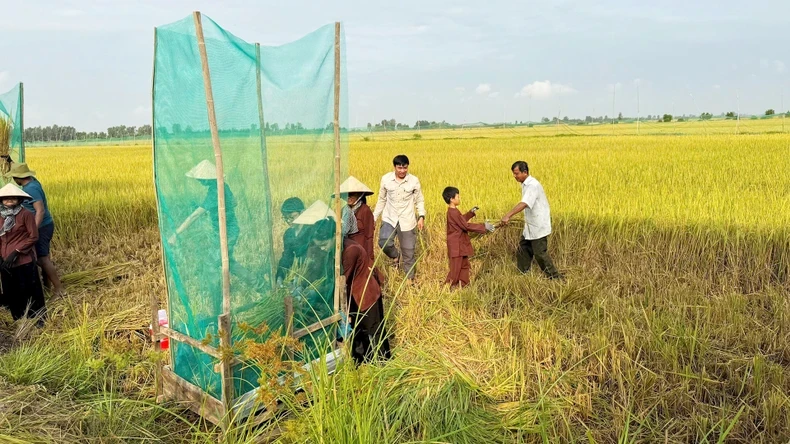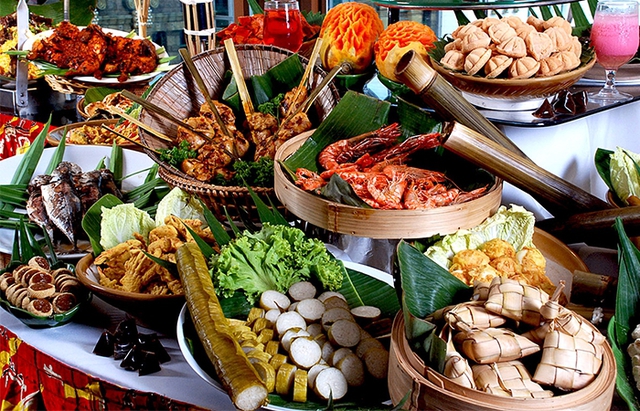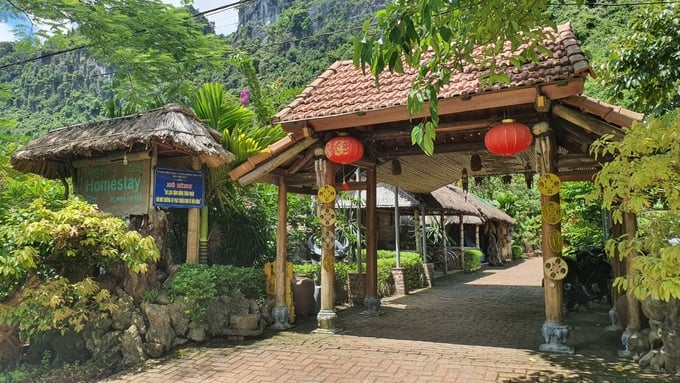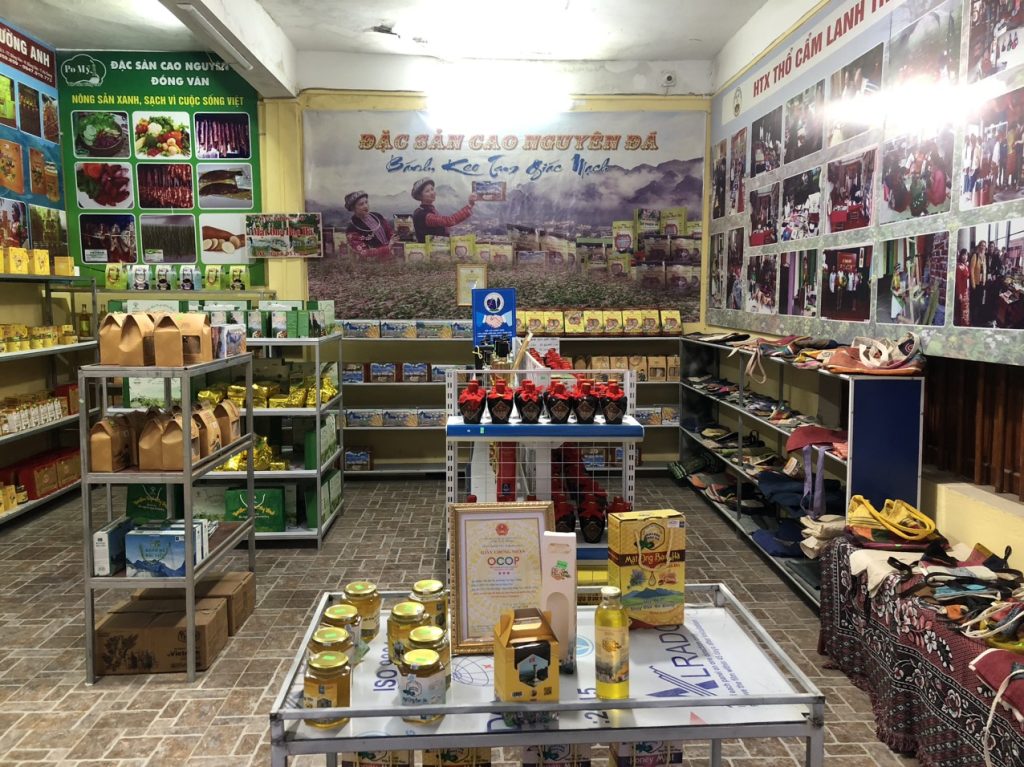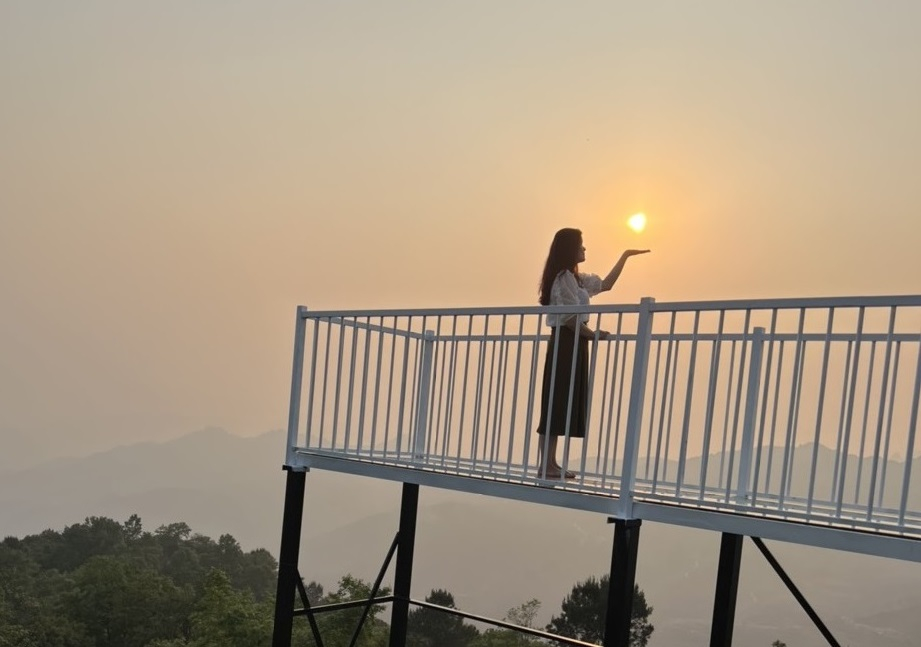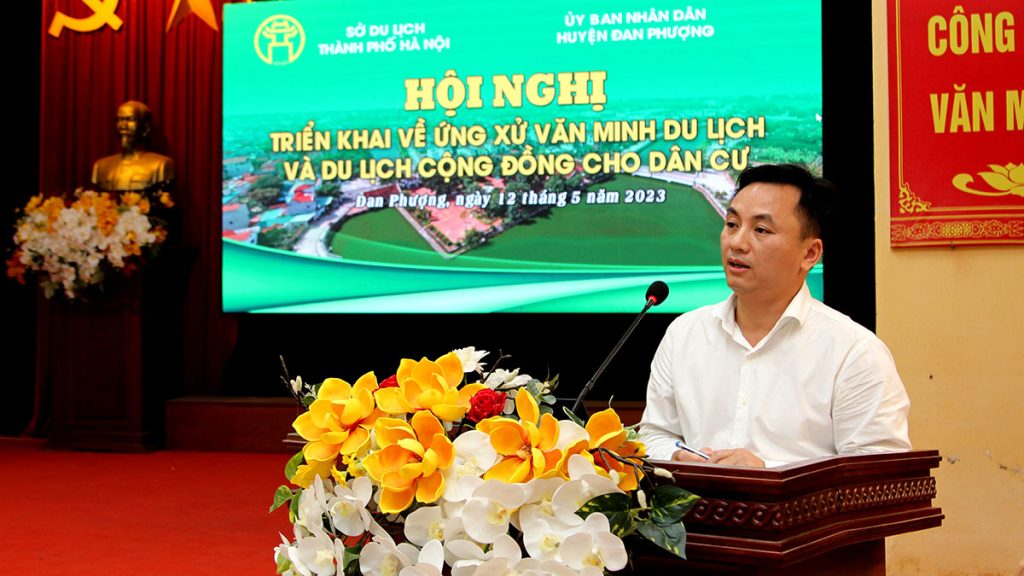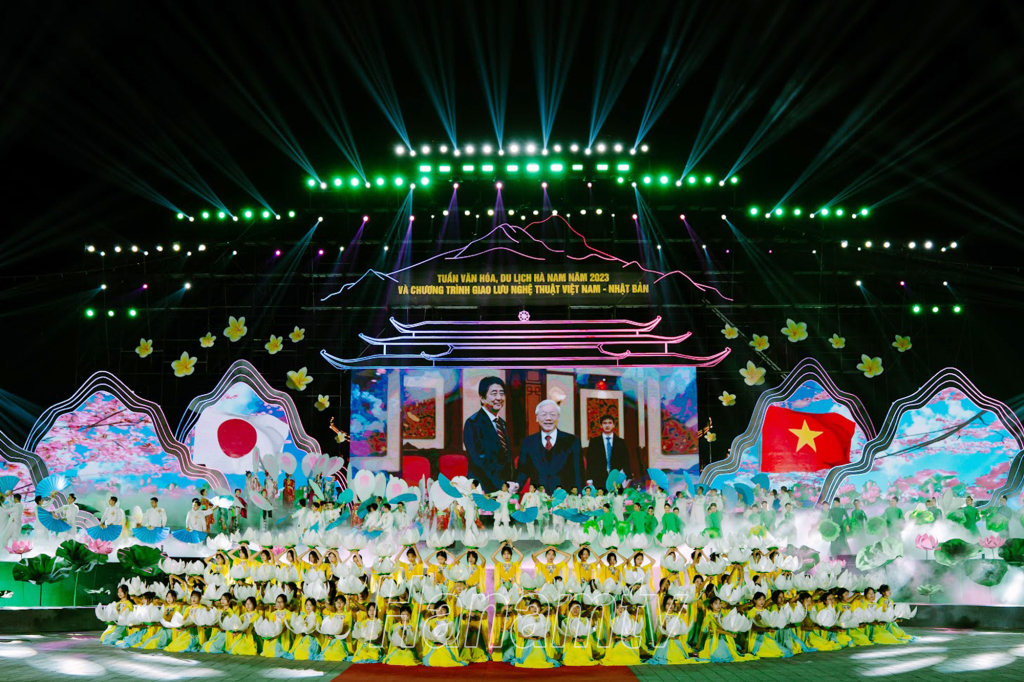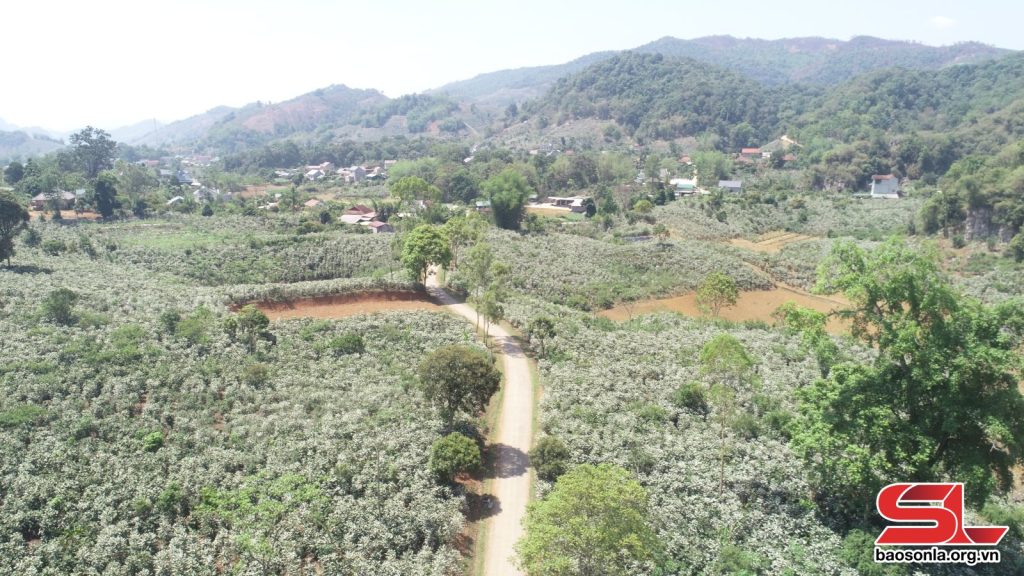In late 2016, farmers and landowners in Dong Thap Province officially introduced agricultural tourism to visitors. Since then, this “land of pink lotuses” has continuously diversified its tourism offerings to attract more visitors. While progress has been made, sustainable and effective agricultural tourism still requires coordinated solutions.
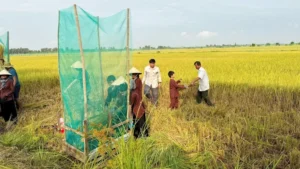
Tourists experience cutting and threshing rice by hand in the field
The appeal of agricultural tourism
During the winter-spring rice crop, the fields near Tram Chim National Park in Tam Nong District come alive with activities such as harvesting rice with sickles, manually threshing grain, and catching fish by hand. These activities, now rare due to modernisation, are recreated to offer visitors an authentic farming experience.
To provide such an experience, Wildtour (a Ho Chi Minh City-based company) has partnered with Quyet Tien Ecological Agriculture Cooperative (Phu Thanh A Commune, Tam Nong District) to organise the “One day as a harvesting farmer” tour. This form of “recreational agriculture” allows visitors to connect with nature, participate in farming activities, and learn traditional techniques while enjoying the experience.
Recently, nearly 20 domestic and international tourists joined the tour, gaining a deeper appreciation for the hardships of rice farming. Nguyen Mai Quynh Tram from Ho Chi Minh City shared: “This experience made me realise how difficult farming is. It has taught me to value every grain of rice more.”
Visitors also learned about ecological rice farming and its connection to the conservation of the Sarus crane at Tram Chim National Park. Bui Minh Nguyet from Wildtour hopes such tours will promote Tam Nong’s ecological rice model and educate children about traditional rice harvesting methods.
Nguyen Minh Tuan, Director of Quyet Tien Ecological Agriculture Cooperative, plans to expand offerings with new seasonal tours, such as rice planting and rodent hunting, to diversify visitor experiences.
Leaving Tram Chim, we arrived in Sa Dec — a city famous for its flowers. Agricultural tourism is booming here, with 20 community-based agricultural tourism sites.
At Mien Tay Lodge (Tan Phu Dong Commune), visitors can explore flower gardens and join in planting trees. Doan Huu Nhieu, the site’s owner, explains: “Flower cultivation in Sa Dec used to focus solely on sales. Now, we are also integrating tourism to add value.”
Agricultural tourism has transformed both farmers’ mindsets and the rural landscape of Dong Thap. Vo Thi Binh, Vice Chairwoman of the Sa Dec City People’s Committee, states: “Tourism allows farmers to sell agricultural products at higher prices. Increased tourism revenue has significantly raised the economic value of farmland.”
The need for a comprehensive strategy
Dong Thap boasts 72 agricultural tourism sites, including standout destinations such as The Mango Trail (My Xuong Commune, Cao Lanh District), Senta Farm (Phu Duc Commune, Tam Nong District), and Sa Dec Flower Village. Activities range from bonsai shaping to visiting Lai Vung’s mandarin orchards.
To support agricultural tourism, farmers have improved landscapes, upgraded infrastructure, and diversified tourism experiences. Attractions include boat tours through lotus fields, fishing, and countryside cuisine featuring lotus-based dishes.
However, challenges remain: tourism development is fragmented, offerings are seasonal, and coordination among stakeholders is lacking.
To ensure sustainability, Sa Dec authorities stress the need for government and travel agency collaboration. Farmers must adopt a professional mindset and continuously innovate their tourism models.
Planned improvements include upgrading transportation networks and integrating science and technology into farming to meet visitor expectations. According to Le Thi Mai Trinh, Deputy Director of Dong Thap’s Department of Culture, Sports, and Tourism, the province is refining its 2025-2030 tourism development strategy with a focus on agricultural tourism.
During a recent meeting on Dong Thap’s 2025-2030 tourism strategy, Le Quoc Phong, Secretary of the Dong Thap Provincial Party Committee, called for a comprehensive review of the tourism sector. He emphasised the need for collaboration between tourism officials and local authorities to develop unique tourism products.
He also urged the swift creation of a detailed tourism development plan with clear objectives, timelines, and actionable strategies. This includes classifying key tourism sites and establishing well-defined tourism routes to optimise visitor experiences and ensure long-term growth.
By leveraging its agricultural strengths and natural beauty, Dong Thap is now well-positioned to develop sustainable agricultural tourism, benefiting both visitors and local communities.
Huu Nghia
en.nhandan.vn

